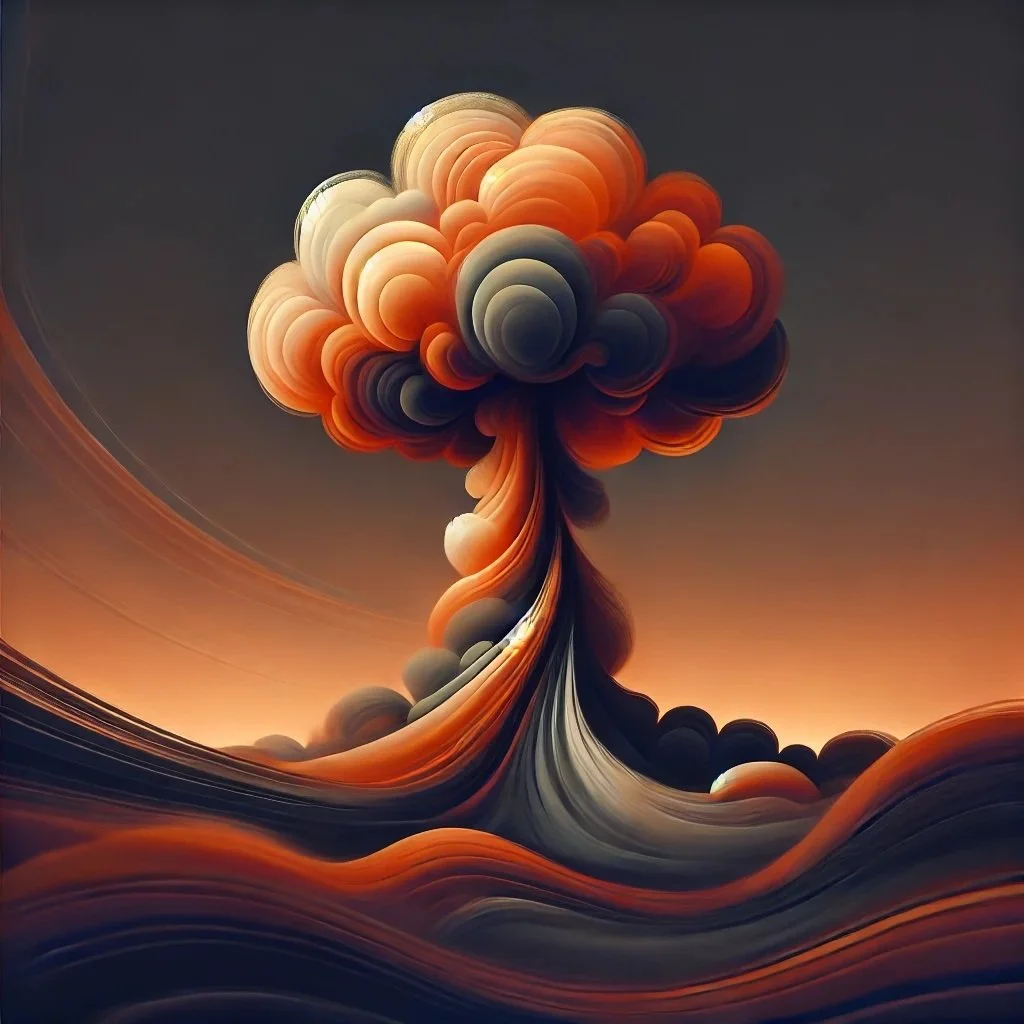By Br Walt
On August 6, 2025, it will have been eighty years since the United States dropped atomic bombs on Hiroshima and Nagasaki. Back then, there wasn’t a nuclear threat from Japan. There was a long war. And a decision to unleash a weapon capable of erasing entire cities in a single flash. Tens of thousands were incinerated instantly. Mothers. Children. Elders. Civilians. Entire neighborhoods vanished. Survivors faced radiation, cancers, disfigurement. And a grief that has spanned generations. The horror was immediate. And unspeakable. In the decades since, we’ve lived under the shadow of that decision. And out of that shadow, a doctrine emerged—Mutual Assured Destruction. The idea that if one nuclear power launched, the others would respond in kind. Everyone would be vaporized. A kind of madness. But it kept the missiles in their silos. And somehow, the nightmare has been held at bay. Not because we found a better way. But because the fear of total annihilation is a myth that kind of works.
In the Intervening Years
But in the eighty years since Hiroshima and Nagasaki, the world has not rid itself of nuclear weapons. Instead, they’ve multiplied. The Cold War saw an arms race. Treaties were signed, but trust was thin. The United States and Russia amassed thousands of warheads. Other nations followed. India. Pakistan. North Korea. China. Israel. The United Kingdom. France. Today, nine nations hold the power to end the world. And the doctrine of deterrence—Mutual Assured Destruction—still hangs over us like a fraying thread. This isn’t a new crisis. It’s the same one we’ve never resolved.
Operation Midnight Hammer
Then on June 13, 2025, a new war erupted between Iran and Israel. Nine days later, the United States entered the fray. In the dead of night—between 2:10 and 2:35 a.m. Iranian time on June 22—Operation Midnight Hammer began. B-2 bombers launched from long-range air bases. Submarines in the Persian Gulf fired Tomahawk missiles. Three major nuclear sites in Iran—Fordow, Natanz, and Isfahan—were struck in a coordinated assault. President Donald Trump took full credit, boasting that the mission had “obliterated” Iran’s nuclear program. The goal, he claimed, was peace through strength. But the strike was a breach of international law—a bombing of sovereign territory without a declaration of war, without Congressional approval, and without international consensus. And the claims of obliteration? False. Intelligence now confirms that while some facilities were damaged, Iran retains nuclear material and enrichment capabilities. The attack has become a rallying cry, galvanizing anti-American sentiment and hardline resolve. It didn’t eliminate the threat. It escalated it. This wasn’t just a tactical assault. It was a planetary risk multiplier.
The Most Dangerous Hour
We are closer to the brink than we’ve been in generations. Not because of one bomb or one war, but because of the slow corrosion of restraint. The lines are blurring. The norms are collapsing. The weapons are still armed. And the myth of redemptive violence—the belief that force can bring peace—still drives our decisions.This is the midnight hour. Security analysts call this moment precarious. The Doomsday Clock sits at 90 seconds to midnight. And yet, we don’t talk about it. Nuclear weapons have become white noise. We rage about pronouns and book bans. But we avert our eyes from the real fire—the one that could end everything. In under an hour. By accident. Or ego. Or algorithm.
The Gospel of Peace
Every great tradition affirms the sacredness of life. The Quran teaches, “If anyone kills a person…it is as if he had killed all mankind.” The Talmud says, “Whoever saves a single life is considered to have saved the whole world.” Jesus said, “Blessed are the peacemakers, for they shall be called children of God.” This is not weakness. This is not naïveté. This is the fierce moral clarity at the heart of the world’s wisdom traditions. This is the path we must reclaim. Not obliteration, but reconciliation. Not domination, but compassion. Not fear, but courage. Not war, but peace. Because we are not gods. We do not get to decide who lives and who dies. We do not get to rain fire on cities and call it righteous. What we do get—what we are called to—is to choose again. To disarm our hearts. To lay down our bombs. To build the world we were meant for. The hour is late. But there is still time. To choose life.
